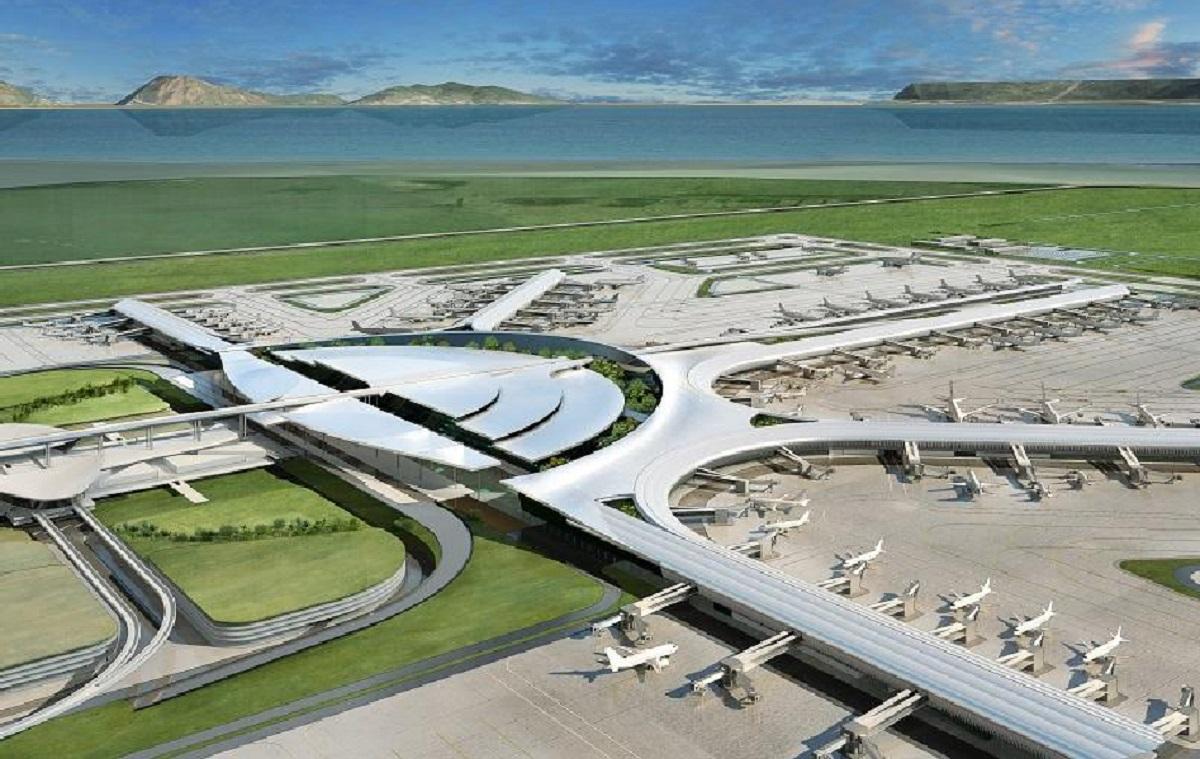Marcos vetoes bill seeking to make Bulacan Airport City economic zone

President Ferdinand “Bongbong” Marcos Jr., on his first day in office, vetoed a proposed measure seeking to create a special economic and freeport zone in Bulacan Airport City, which could have made enterprises operating in the area entitled to tax incentives.
In his letter addressed to the Senate President and members of the upper chamber dated July 1, 2022, Marcos said he was “constrained to veto” the enrolled House Bill 7575 or “An Act Establishing the Bulacan Airport City Special Economic Zone and Freeport, Province of Bulacan and Appropriating Funds Therefor.”
In vetoing the bill, the President argued that the proposal “significantly narrows our tax base with its mandated incentives applicable to registered enterprises,” which is “contrary to the government’s objective of developing a tax system with low rates and broad tax base.”
He added that with the bill, the tax system would be rendered incapable of generating a yield sufficient to sustain the country’s social and economic infrastructure as the government would be forced to seek new sources of revenues through additional taxes or borrowings in the future, which could ultimately burden taxpayers.
Marcos also cited Republic Act 11534 or the Corporate Recovery and Tax Incentives for Enterprises (CREATE) Act that already allows eligible enterprises outside economic zones to apply for and avail of fiscal incentives without the need for creating new special economic zones.
In September 2020, the House of Representatives approved the HB 7575 while the Senate approved its counterpart measure in May 2022.
'Unfortunate'
Senator Juan Miguel Zubiri, a supporter of Marcos, respected the President's decision while arguing for the importance of the bill.
Zubiri said the CREATE Law does not ban the establishment of new economic zones as long as it complies with the new fiscal and non-fiscal incentives under the measure and as long as it conforms with the strict regulatory powers of the Fiscal Incentives Review Board (FIRB).
"The Bulacan Airport City Special Economic Zone is envisioned to complement the construction of one of the largest airports in the region and to make it not just a transportation hub but a manufacturing hub as well, in the hope of bringing in much-needed investments and thousands of jobs for the people of Central Luzon," the lawmaker said.
"That is why we made sure that the bill conforms with the provisions of CREATE Law on the new incentives regime. The veto is unfortunate but it is a presidential prerogative," he added.
Senator Joel Villanueva similarly called the veto unfortunate.
"As a true-blooded Bulakenyo, we find this decision unfortunate, as the proposal has the potential to create jobs for Filipinos," said Villanueva in his statement.
"We fully supported the passage of the Bulacan freeport bill as it aims to provide jobs and livelihoods for our kababayans, as well as develop the country’s economy with investments and infrastructure."
The Senator added that he would carefully study refiling the bill, and even consider other possible proposals such as strengthening the PEZA Law.
Despite this development, Villanueva looked forward to working with the new administration and push for proposed legislation and policies in harmony with the priorities of the executive branch.
The creation of Bulacan Airport City Economic Zone and Freeport was expected to provide alternative areas for investment outside Metro Manila.
It was seen to have the “potential to boost economic activity in the area, provide more job opportunities to Bulakeños and the surrounding provinces, and improve the economic condition in the province.”
If enacted into law, Bulacan Airport Ecozone will cover San Miguel Corp.’s P740-billion New Manila International Airport (NMIA), the Airport City to be established adjacent to the airport, and lands adjacent to Airport City as may be later determined.
The planned NMIA is seen to decongest the country’s main gateway Ninoy Aquino International Airport (NAIA) as it has a design capacity of 100 million passengers a year but can be expanded to 200 million, and is targeted to accommodate 240 aircraft movements per hour.
Also, the airport project involves the construction, operation, and maintenance of a 2,500-hectare airport in Bulakan, Bulacan.
The development includes a passenger terminal building with airside and landside facilities, an airport toll road, and four runways.
While Marcos recognizes the objective of the proposed creation of the Bulacan Airport City economic zone to accelerate economic growth in the area, he said that he “cannot support the bill considering the provisions that pose substantial fiscal risks to the country and its infringement on or conflict with other agencies’ mandates and authorities.”
Moreover, the President said that fiscal prudence must be exercised particularly at times when resources are scarce and needs are abundant.
“[T]he proposed measure lacks coherence with existing laws, rules, and regulations by failing to provide audit provisions for the Commission on Audit, procedures for expropriation of lands awarded to agrarian reform beneficiaries, and a master plan for the specific metes and bounds of the economic zone,” Marcos said.
“Moreover, the enrolled bill grants the economic zone authority rule-making powers relative to environmental protection to handle technical airport operations in contravention of existing aeronautical laws,” he added.
The President noted that the proposed economic zone is also located near the Clark Special Economic Zone, “which is against the government’s policy on creating special economic zones in strategic locations.”
Marcos also noted that the National Economic and Development Authority and Region 3’s development council asserted the need to thoroughly study and assess the costs to ensure that the establishment of the economic zone would be beneficial to the entire country.
Presidential Communications Operations Office Secretary Trixie Cruz-Angeles confirmed that the President vetoed the HB 7575.
"The Constitution requires that in case of a veto, the bill shall be returned to the House where it originated, along with the President’s objections," Cruz-Angeles said. —with Richa Noriega/LBG/VBL/DVM, GMA News



